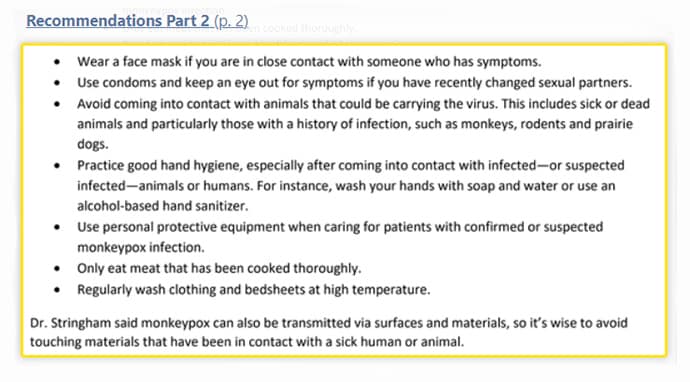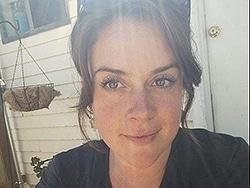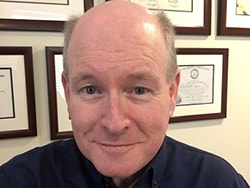When a case of monkeypox was reported in Nevada’s Humboldt County in August, it was the state’s first detected occurrence of the virus in a rural area. Soon, cases were found in other rural counties — Nye, Lyon, and Elko — posing another hurdle for public health systems that have been worn thin by the covid-19 pandemic.
Experts say the response to the monkeypox virus in rural America may be affected by the patchy resources and bitter politics that are a legacy of the pandemic, challenges that some worry could allow sporadic infections to gain a foothold.
“Your embers turn into a forest fire really quickly,” said Brian Castrucci, president and CEO of the de Beaumont Foundation, a national nonprofit focused on public health policy. “The challenge is: Do we have the infrastructure in place in rural America for an adequate response to monkeypox, to covid, to whatever is next on the horizon?”
In Humboldt County, local officials galvanized quickly after monkeypox was reported. The local health board issued a news release encouraging residents to be cautious about physical contact and outlining what symptoms to look for — painful or itchy rashes, fever, and headache, among others.
“I don’t think this is something we should be afraid of,” Dr. Charles Stringham, the county’s health officer, said in the news release, “but instead something that each of us can avoid by taking a few relatively simple precautions.”


Local health officials are in a “primary prevention role,” Stringham said during an interview. It’s a role that includes educating the community about the virus, monitoring the person who tested positive, and checking in with local physicians.
State and local public health officials in Nevada said the response in Humboldt County, where nearly 18,000 people live, and similar efforts in other rural communities follow guidelines set by the Centers for Disease Control and Prevention. State and local health leaders meet monthly to discuss public health issues, which of late have included the monkeypox virus. They said they’re confident in local responses.
Still, some residents of rural Nevada said they have been confused about where to find vaccines or whether vaccines were available in their county.
Stevie Noyes, a resident of Winnemucca, Humboldt County’s largest city, who identifies as pansexual, said she wouldn’t know where to go to get a vaccine for monkeypox. She called a local retail pharmacy, where her family usually gets vaccines, in early September and was told the pharmacy didn’t have monkeypox vaccines. The pharmacist didn’t know where she could find one in town.
Noyes, a 34-year-old hairdresser, said she’s not urgently concerned about monkeypox because no other cases have been detected in the county. Should the virus begin to spread, however, she said, members of the local LGBTQ+ community would lean on one another, rather than local county or health officials.
County and health officials “take a lot of heat from the town” on the politics of responding to public health issues, Noyes said. “What I see a lot is that political influence to where it does curb what’s released and it does curb the steps that are taken.”
Despite the venomous discourse Noyes has witnessed, Stringham said that in his experience, the monkeypox virus has not been difficult to respond to politically, especially compared with covid.
CDC data shows that non-Hispanic Black and Hispanic men who have sex with other men are overrepresented in infections across the country. LGBTQ+ advocates have said they’re concerned that the government response wasn’t reaching their communities even though they are disproportionately affected.
In larger cities, such as Las Vegas, officials have partnered with LGBTQ+ community centers to promote awareness and to distribute educational materials and vaccines. But there is no similar center in Humboldt County, where 57% of voters opposed a ballot question in 2020 that reversed a provision in the state’s constitution that banned same-sex marriage. Statewide, the ballot measure was approved by 62% of voters.

Stevie Noyes says she feels that politics can influence the way local leaders respond to public health issues in Winnemucca, Nevada.
Noyes said she’s more concerned about prejudice than the virus and fears that because the virus has been linked to men who have sex with men, it could spark retribution against people who identify as LGBTQ+ in Humboldt County. “A lot of these people, the more you interact with them, the more emboldened and, I mean, eventually dangerous they become,” she said.
Some people in Winnemucca have been outspoken about calling monkeypox a “gay virus” and making jokes on Facebook, she said.
In late September, Noyes helped host Winnemucca’s second Pride festival. Immunize Nevada, a nonprofit organization focused on providing vaccines across the state, was there to provide information about covid-19 and monkeypox.
“We’re hoping to combat it that way,” Noyes said.
Kristy Zigenis, program manager for the state’s immunization program, said responding to the monkeypox virus in rural places requires nuance. “If we were to hold a clinic in, say, a rural area, not all of those people might be ready to share with the world that they have participated in this behavior,” Zigenis said.
She added that public health officials have encountered affected people in Clark County, the home of Las Vegas, who weren’t prepared to share their sexual partners’ names during contact tracing or couldn’t identify their partners. “I think that probably crosses a bit into the rurals as far as what’s going on with the case count,” she said.
As of Oct. 26, there were 28,087 confirmed cases of the monkeypox virus nationwide, according to the CDC, and 298 in Nevada, putting the state in the second-highest tier for transmission. Most of the state’s cases are in Clark County, where more than two-thirds of the state’s residents live, but cases have been reported in four rural counties.
Because it’s unclear whether monkeypox has spread beyond the one detected case in Humboldt County, Stringham said he’s trying to provide enough messaging to keep residents informed, but not too much to cause burnout.

Dr. Charles Stringham, Humboldt County health officer, has worked in Winnemucca, Nevada, for decades, most recently leading the local response to the covid-19 pandemic.
He said he thinks resources would be better directed toward prevention of covid, adding that the situation could change.
To make matters more difficult, the community health nurse, who is responsible for distributing the vaccine from a state-run clinic in Winnemucca, retired months ago, and her replacement, a nurse from Carson City, didn’t arrive until October.
“We’re working in a bit of a deficit in that respect,” Stringham said.
During the interim, Zigenis said, Humboldt County residents who met the eligibility requirements to receive a monkeypox vaccine needed to see an administrative assistant in the Winnemucca Community Health Nursing Services office, where 100 doses of the Jynneos vaccine were available. The state agency would then dispatch someone to Humboldt County to administer the vaccine.
Experts say that gap is emblematic of the kinds of difficulties that officials in rural communities across the country face when responding to public health issues.
“The challenge is there may be people who aren’t seeking primary care, so cases aren’t getting picked up,” Castrucci said. He added that the focus of resources on covid or monkeypox can cause other health issues to fall through the cracks, especially considering the lack of investment in local public health departments in rural America compared with departments in larger cities.
Source: Read Full Article
